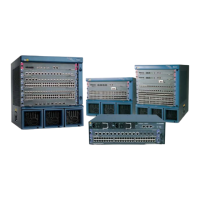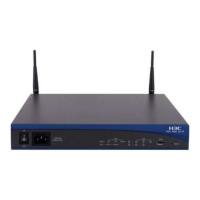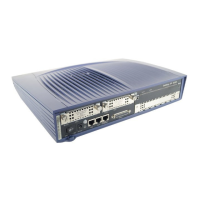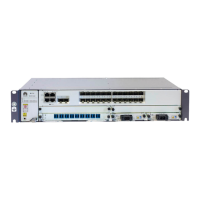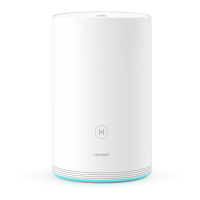Figure 8-1 Diagram of port roles
S2 S3
A
AB
A a
S2 S3
A
AB
A
a
B
b
S1
Root bridge
S1
Root bridge
Root port
Designated port
Alternate port
Backup port
As shown in Figure 8-1, RSTP defines four port roles: root port, designated port,
alternate port, and backup port.
The functions of the root port and designated port are the same as those defined in STP.
The description of the alternate port and backup port is as follows:
– From the perspective of configuration BPDU transmission:
– The alternate port is blocked after learning the configuration BPDUs sent by
other bridges.
– The backup port is blocked after learning the configuration BPDUs sent by itself.
– From the perspective of user traffic:
– The alternate port backs up the root port and provides an alternate path from the
designated bridge to the root bridge.
– The backup port backs up the designated port and provides an alternate path from
the root node to the leaf node.
After all ports are assigned roles, topology convergence is completed.
Quidway S7700 Smart Routing Switch
Configuration Guide - Ethernet 8 STP/RSTP Configuration
Issue 01 (2011-07-15) Huawei Proprietary and Confidential
Copyright © Huawei Technologies Co., Ltd.
383
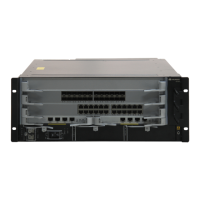
